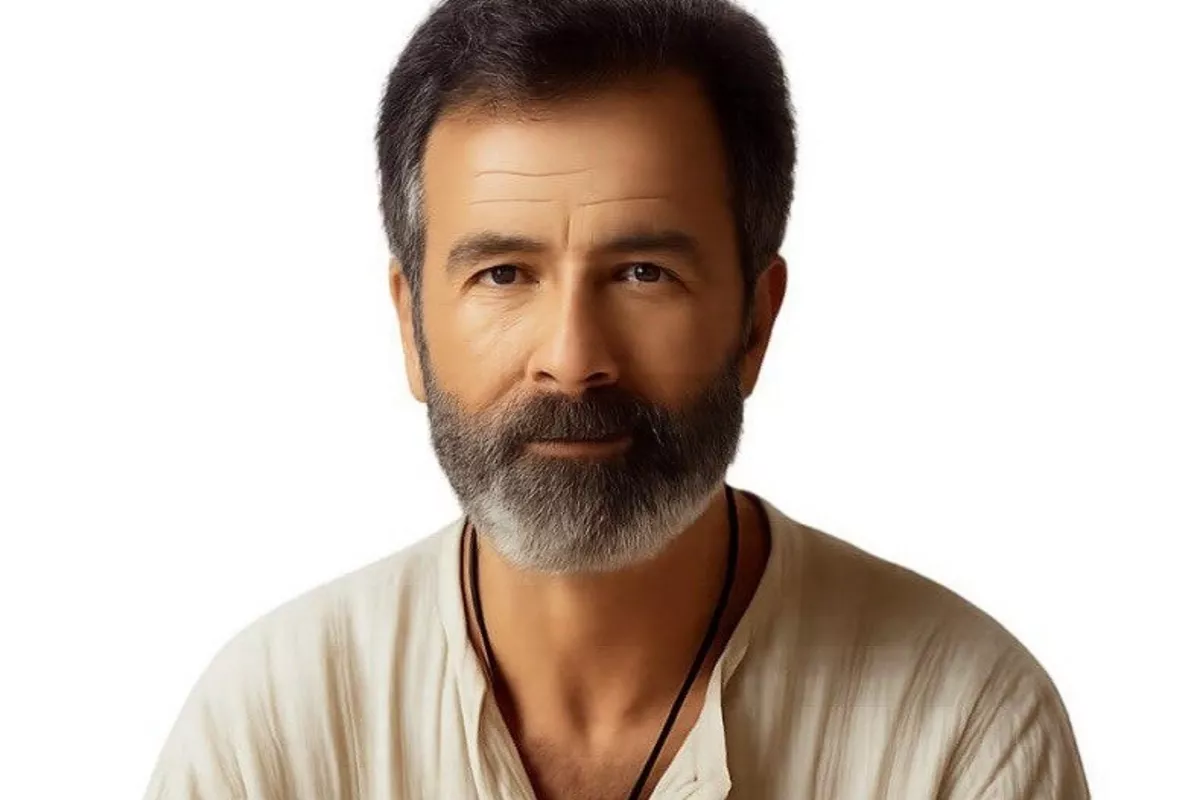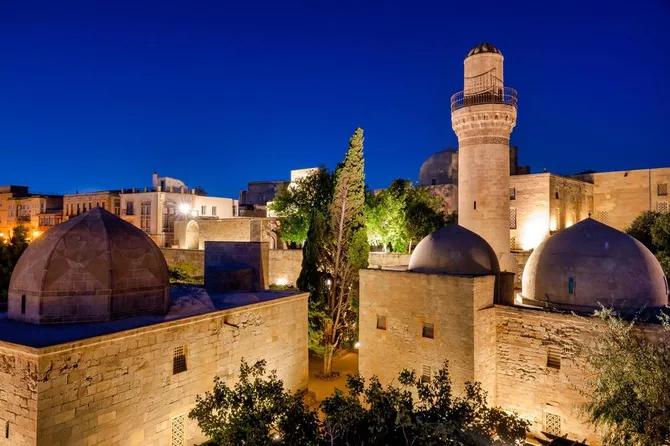
In a conversation with The Caspian Post, Welsh-born author and sustainable development expert Adnabod Calon opens up about the journey that led to the creation of his novel Shirvanshahs. Though not a historian by training, Calon approaches the past through a unique and deeply personal lens, blending elements of history, philosophy, and spirituality to craft a narrative that speaks to the challenges of today’s world.
Living now in Miami, where he teaches courses on sustainable development, Calon has spent much of his career exploring how societies can adapt to rapid technological change, climate crises, and growing social inequality. His literary work is an extension of this quest. In Shirvanshahs, he looks to the medieval kingdom of Shirvan - a land once home to Sufis, mystics, and seekers of divine truth - to uncover timeless lessons about resilience, creativity, and the human spirit.
In this exclusive interview, Calon reflects on the inspiration behind his book and the ideas that shaped it. He discusses his fascination with Azerbaijan’s sacred landscapes, including the countless pirs and the enduring cult of Khidr, and how these symbols resonate with his vision of a spiritual search that transcends geography and time. Calon also speaks about his writing process, the philosophical questions at the heart of his story, and why he believes the history of Shirvan offers insights for the modern world.
- Please tell us about yourself.
- I was born in Wales, where I studied engineering and economics - disciplines that shaped my interdisciplinary outlook. Early in my career, I worked as a consultant for several think tanks in the UK and Europe, focusing on policy and development strategies. About ten years ago, I moved to Florida, where I now live in Miami and teach courses on Sustainable Development at several educational institutions.
My professional life is centered on the question of how societies can adapt to global challenges - climate change, technological disruption, and social inequality. I believe that the true wealth of humanity lies not only in resources or technology, but in creativity, spirituality, and the human capacity for renewal.
- Tell us how you came up with the idea to write a book about the Shirvanshahs. How long did it take you to write the book?
- I am more interested in the modern world than in history itself. With every passing year, the number of people who feel “left out” of modern life is growing, and artificial intelligence will only increase this feeling. Only those who create and seek the divine within themselves can remain truly human in this Fifth Industrial Revolution.
Looking for historical parallels, I discovered Shirvan - a kingdom that, before the Mongol invasions, became a refuge for Sufis, Kabbalists, and seekers of all kinds. I must add - I am not a historian. I used only open historical sources, and my goal was not to reconstruct the past, but to speak about the present through the mirror of history. As a Sufi might say with a smile: the past is just another metaphor for today.
The book itself took about three years of writing, research, and constant rewriting. But in truth, the novel grew out of nearly fifteen years of reflection on the role of spirituality in the modern world. Writing Shirvanshahs became both a creative act and a spiritual journey, where the lines between history, philosophy, and my own personal search began to blur.

Shirvanshahs' Palace/Photo credit: georgia.to
- What inspired you to do this? How long have you been familiar with Azerbaijan, its history, and culture?
- I am not a specialist in Azerbaijan, but certain facts drew me in and refused to let go. First, the early Shirvanshahs were simply rulers, like everywhere else. But later, they began to add the title of “Sheikh” - a spiritual leader - to their throne name. That alone suggested a remarkable blending of political and spiritual authority.
Second, Shirvan is dotted with hundreds of pirs. A pir is not just a sacred site, but the tomb of an elder who once guided a Sufi community. Some estimates speak of 400-500 such shrines in the territory of Shirvan, which means that at one time there may have been hundreds of khanaqahs - Sufi monasteries - across this land.
Third, the cult of Khidr (or Hizir, or Azer) fascinated me. His presence even echoes in the very name “Azerbaijan.” And finally, in Baku there is a mysterious tower, which in my novel I called the Tower of Adam and Eve. For me, it became a symbol - uniting all who search for God within themselves.
These discoveries convinced me that Shirvan was not only a kingdom of its time, but also a model of spiritual openness that speaks to us even today.
- You've put the book up for sale online. How popular is it? Are you considering translating it into Azerbaijani?
- I am not known in the world of novelists - my name is more familiar in the world of sustainable development experts. So I do not expect the book to suddenly become a bestseller. On Amazon KDP, readers can download the e-book, order a paperback or hardcover edition, or even read it for free through Kindle Unlimited.
I run small advertisements on Facebook, Instagram, and Amazon, which bring new readers. My goal was not to write a fast-paced thriller but to express my thoughts about the role of spirituality in the modern world. And yet, parts of the story do resemble a thriller.
In the novel, Akhsitan I tries to build a Tower and turn Shirvan into a spiritual center, while the Assassins work against him. The protection of Saint Khidr ultimately defeats their schemes, but the plot keeps readers of any age engaged. There are three main narrative lines: Akhsitan’s path to power and his debates with dervishes, sages, and viziers; the story of an Assassin official in Shirvan, whose worldview changes as he discovers the secrets of Alamut; and the tale of a young couple - the boy exploring the catacombs beneath Baku, and the girl who sees prophetic dreams in which Saint Khidr warns of dangers to come.
- As far as I understand, you haven't visited Azerbaijan…
- You are right, I have never been to Azerbaijan. But my novel is in some sense wider than Azerbaijan itself. I chose Shirvan not because I am a historian or a traveler, but because I saw in its story something unusual - a kingdom that once opened its doors to seekers of the spirit.
I do not aim for a translation into Azerbaijani, although I believe people in Azerbaijan may find it meaningful to discover that they live not on ordinary land, but on sacred ground, where countless generations sought the divine within themselves.
-How did you collect information about Azerbaijan?
- All the information I used is available in open sources. My role was not to discover something new, but to connect the pieces - like putting together a puzzle until a picture appeared.
Unlike academic articles, a novel does not allow footnotes or references. So I took a simpler path: when I wanted to share knowledge, I often introduced the historian himself as a character. For example, I drew on the work of Farid Alekperli (who, sadly, has recently passed away). Instead of citing his article on Sufism, I turned him into a dervish within the story - and let him speak his own ideas with his own voice.
Interview by Asif Aydinly
Share on social media